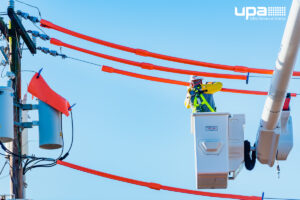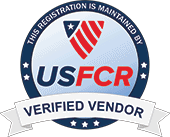Leadership gurus and business coaches each have their own unique styles. One of the few consistent threads is that they all stress the importance of building meaningful relationships. Whether through networking with industry peers outside of your company or establishing a trusting relationship with employees, developing a strong rapport is essential. And when it comes to how to do this, both networking and relationship-building with employees have a lot in common.
We recently came across a piece titled “Three types of building rapport for a successful networking” that really resonated with us. Read on as we explore those three types further.
Rapport type #1: Normal
As the author writes, normal rapport is easy. This is the result of a relationship when two people have something in common. Similar interests, past experiences, or shared skill-sets can act as the foundation of a relationship. This rapport type is similar to what you might experience with a friend or a family member.
With utilities, it’s easy to see how building a normal rapport can lead to success. Now it’s up to you to take advantage of that common ground and build on it. If networking at industry events, talk about some of your experiences, both good and bad. You can also use this same tactic when building a relationship with employees. Few things unite people as much as a shared work experience.
Related: Minimizing Inter-team Friction and Building Great Working Relationships
Rapport type #2: Impromptu
The second type, impromptu, doesn’t come as naturally as the “normal” rapport. With an impromptu rapport, you may have to do a little digging. Don’t be afraid to ask questions about where someone has worked in the past. Ask about the types of projects they feel they excel at, or even some of their favorite things to do outside of work.
Related: How to Keep Employees Engaged and Enthusiastic in the Service Space
The answers to those questions could be the spark that you need to develop a vital rapport. A deeper connection can lead to new business for your utility or a more productive, validated employee. The author of the piece even provides some helpful advice when he says, “Take notice of people around you that you may not know, but you may have something in common.” Practice starting conversation around that commonality first and then ask another question so you get to know something more about them.
Related: UPA Uses Team Building For Company Culture
Rapport type #3: Custom
The hardest of the three rapport types, custom, has to be built from scratch. That means you won’t have the advantage of knowing the background or personal interests of the person with whom you hope to build rapport. Instead, you have to really put in the work to find a potential opening.
Related: Top Five Ways to Build a Rapport With Your Team
“For custom rapport to happen you have to make an effort. Do your homework and find out something you have in common with the other person in order to strike up a conversation,” the author writes. One idea is to spend some time researching a person’s background and career history to find something that you may have in common.
Utility Partners of America is a leading ally of utility companies
In addition to partnering with utilities and energy cooperatives on meter services, new construction, and inspection and maintenance, UPA offers professional services including call center services, billing administration, and staffing. We provide training to make your teams better and can work with your leadership on building a better rapport with employees and within the industry. If you’d like to learn more about what we can do for you, contact us today.





